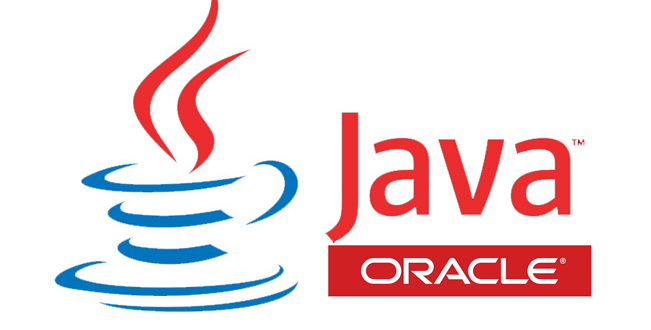Java

This is a parent category to collect all articles for technologies, which are based on Java like Java EE or Spring.
Java SE (Standard Edition) is a programming language , which I use in my daily business to solve problems and to provide services for my clients.
Java EE (Enterprise Edition) in comparison to Java SE can be described as a huge collection of Frameworks, Servers and APIs developed based on and for Java SE to better support its use in business cases.
The current version of Java is 9 and was released end of 2017.
Oracle currently supports Java versions 8 and 9 for free with frequent updates.
Recently I wanted to compare some changes I applied in Java projects to the old state before committing my changes to the repository.
eGit staged files for commit, which I did not even touch during development.
Looking at the files using the Compare / Patch view in Eclipse, I saw that eGit was showing all whitespaces in the impacted files as changes.
But nothing had changed, so I would have to clean up before commit or commit unchanged files thereby messing up the repository. In addition the whole file would be stored as changed, not just the actually updated lines.
Searching the internet for a solution I came across a forum on eclipse.org, which provided a root cause analysis and a solution for this bug.
Bug Root Cause and Solution
I will just quote what I found in the forum as it explains what is happening very well.
"The problem for me was due to being on Windows and EGit not respecting the "core.autocrlf" configuration setting. When I run "git config --list" from the command line I can see that "core.autocrlf" is set to "true". But when I open Eclipse Preferences / Team / Git / Configuration, that setting is not listed in any of the tabs."
"There are 2 ways to solve this. The first way is to manually add the "core.autocrlf" setting to "true" in the Eclipse preferences which will solve the problem for Eclipse. However, I think the better solution is to run "git config --global core.autocrlf true" to explicitly set it to true in the global configuration file which Eclipse will then read. Somehow this setting was set for Git command line but was not stored in any of the 3 config files that Eclipse would read."
So, the whole thing happens because the workspace version on Windows machines uses crlf while the index version is changed to unix lf line endings.
There is a configuration setting to respect crlf line endings but Eclipse eGit ignores this configuration.
- Hits: 6169
Subcategories
Java SE Article Count: 31
This category will hold articles for Java SE and Eclipse.
I think Java can be a lot of fun, since it already delivers a lot out of the box.
People who develop Java APIs usually give it a lot of thinking and work.
Java EE in comparison to Java SE can be described as a huge collection of Frameworks and API developed around Java SE.
Java EE is not a stand-alone programming language, but based on Java SE.
JavaFX and e(fx)clipse Article Count: 5
This category provides articles regarding JavaFX as well as e(fx)clipse as this seems to be a good start to deal with JavaFX.
JavaFX has been around for some time now and Oracle is currently triying to enforce it as new standard for Java Rich Client Applications.
Regarding to a developer I know it has had some improvements over the years and it looks like it is going to be a try out worthy successor of AWT (Java), Swing (Java) and SWT (IBM).
However Oracle is trying to push this somewhat new technology into the market for some time now, it has not yet been accepted by the Java community.
Root cause for this seem to be the following reasons.
- Companies are not asking for Rich Client Applications, but there is a trend for developing Web Applications. Therefore motivation to use anything like AWT, Swing, SWT or JavaFX is low except for private purposes. However JavaFX supports Mobile Applications, which is a big market. Since integration with mobiles is asked by companies as well for web applications and older technologies not supporting it, I can understand Oracle not wanting to provide support for it anymore.
- Programmers are lazy. If you give them something completely new to learn, it takes quite an effort to get to a stage where you are as fast as using already known technologies. The standard platform for Java development, eclipse is still not providing the same comfortable "what you see is waht you get editors" for JavaFX as it is providing for the older technologies. Until eclipse is not deprecating support for Swing and older technologies like SWT and AWT they will be used by programmers.
I did some research one the internet regarding JavaFX so far but I will try to write more articles in the future about it as I intend to write little tools for myself in Java. For this I of course do not want the hustle of maintaining a JEE server all the time. Therefore JavaFX is intersting for me but I am far from beeing an expert, so try it yourself.
Eclipse SWT Article Count: 2
Groups articles regarding eclipse SWT.
Apache POI Article Count: 4
A category to collect articles around Apache POI.
Java Architecture for XML Binding (JAXB) Article Count: 3
Java Architecture for XML Binding (JAXB) provides a fast and convenient way to bind XML schemas and Java representations, making it easy for Java developers to incorporate XML data and processing functions in Java applications. As part of this process, JAXB provides methods for unmarshalling (reading) XML instance documents into Java content trees, and then marshalling (writing) Java content trees back into XML instance documents. JAXB also provides a way to generate XML schema from Java objects.

